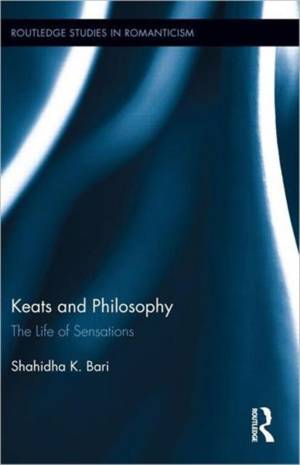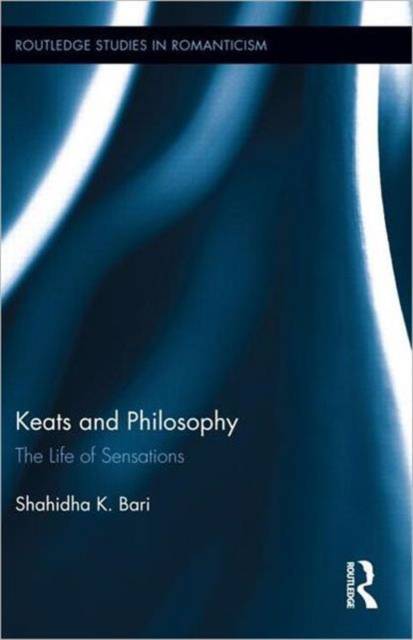
- Retrait gratuit dans votre magasin Club
- 7.000.000 titres dans notre catalogue
- Payer en toute sécurité
- Toujours un magasin près de chez vous
- Retrait gratuit dans votre magasin Club
- 7.000.0000 titres dans notre catalogue
- Payer en toute sécurité
- Toujours un magasin près de chez vous
Description
John Keats remains one of the most familiar and beloved of English poets, but has received surprisingly little critical attention in recent years. This study is a fresh contribution to Keats criticism and Romantic scholarship, positioning Keats as a figure of philosophical interest who warrants renewed attention.
Exploring Keats's own Romantic accounts of feeling and thinking, this study draws a connection between poetry and the phenomenological branches of modern philosophy. The study takes Keats's poetic evocation of touching hands, wandering feet, beating hearts and breathing bodies as a descriptive elaboration of consciousness and a phenomenological account of experience. The philosophical terms of analysis adopted here challenge the orthodoxies of Keats scholarship, traditionally characterised by the careful historicisation of a limited canon. The philosophical framework of analysis enhances the readings put forward, while Keats's poems, in turn, serve to give fuller expression of those ideas themselves. Using Keats as a particular case, this book also demonstrates the ways in which theory and philosophy supplement literary scholarship.
Spécifications
Parties prenantes
- Auteur(s) :
- Editeur:
Contenu
- Nombre de pages :
- 204
- Langue:
- Anglais
- Collection :
- Tome:
- n° 15
Caractéristiques
- EAN:
- 9780415888639
- Date de parution :
- 16-05-12
- Format:
- Livre relié
- Format numérique:
- Genaaid
- Dimensions :
- 155 mm x 234 mm
- Poids :
- 539 g

Les avis
Nous publions uniquement les avis qui respectent les conditions requises. Consultez nos conditions pour les avis.






